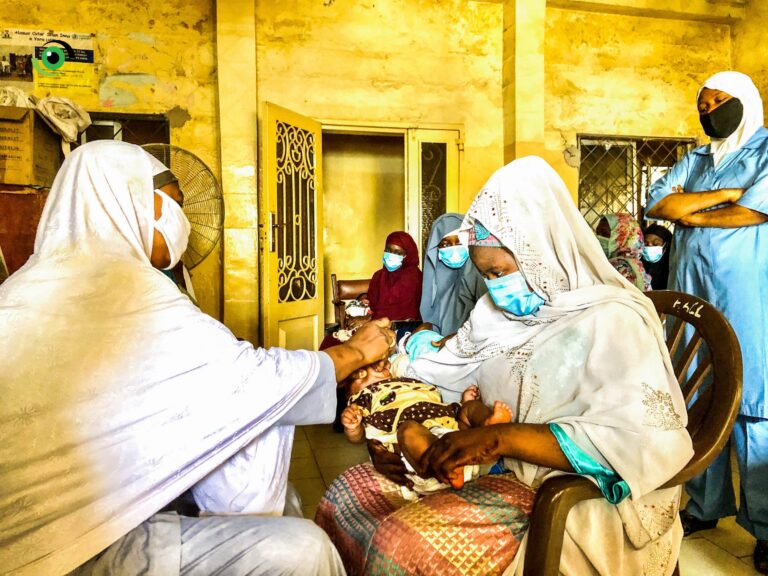By Amina Hassan
For many women in Kano’s rural communities, childbirth remains a life-threatening journey rather than a celebration of new life. In Tsamiyar Kara, stories of severe bleeding, prolonged labor, and other complications are common, and health workers say they continue to claim lives that could have been saved with timely care.
Hama Usman, a mother of 13, recalled how after her twelfth delivery she nearly lost her life. “I bled heavily after childbirth and thought I was going to die.” she said.
Her experience reflects what experts describe as postpartum hemorrhage (PPH), one of the leading causes of maternal deaths in Nigeria. Another mother, Hajara Muhammad, who has six children, said she developed diabetes after childbirth and also suffered severe bleeding, fever, and headaches.
At the Sir Muhammad Sunusi Specialist Hospital in Kano, nurses say the most frequent complications they attend to are postpartum hemorrhage and eclampsia.
One of them, Fatima Abdullahi, explained briefly: “Most of the emergencies we see are women who bleed heavily after delivery or come with very high blood pressure. These are the cases that kill quickly if you don’t act fast.”
READ ALSO: Group Worries Over Nonimplementation of Kano Maternal and Child Health Law
But the picture became clearer when i spoke to Rabi’atu Adamu Yusuf, a senior nurse and midwife at the hospital, who described the standard emergency steps. “If a woman comes with severe bleeding, we first check the cervix to see if any product is retained.
At the same time, she is placed on IV fluids, her blood pressure is monitored, and depending on her condition, we give normal saline, Ringer’s lactate, or oxytocin to help the uterus contract,” she explained.
These procedures, though lifesaving, require swift response and medical supplies that are not always available in rural facilities.
Beyond bleeding, midwives also highlighted the growing number of women who suffer from vesico-vaginal fistula (VVF), a condition caused by prolonged or obstructed labor. In such cases, the bladder becomes damaged and women are left unable to control urine.
Women with VVF, according to health experts, face not only medical challenges but also stigma and isolation in their communities. Treatment requires specialized surgery, which is often unavailable to women in poor or rural areas.
According to the World Health Organization (WHO), Nigeria contributes nearly 20 percent of all maternal deaths worldwide. The leading causes remain postpartum hemorrhage, eclampsia, and complications from prolonged labor. With limited access to trained midwives, emergency drugs, and functional health facilities, rural communities are most at risk.
READ ALSO: CHRICED Calls For Urgent Action To Curb Maternal, Child Mortality In Kano
Experts believe the cycle can be broken through early antenatal care, skilled birth attendance, and better resourced health centers. Awareness campaigns encouraging women to seek hospital delivery rather than home births are also key.
Kano State enacted a law guaranteeing free healthcare for pregnant women and children under five, aiming to curb persistently high maternal and child mortality rates.
The law provides for free antenatal and postnatal care, emergency obstetric services such as caesarean sections, treatment for complications, and ambulance services for expectant mothers.
However, two years after its passage and assent, the law remains largely ineffective, according to the Resource Centre for Human Rights and Civic Education (CHRICED).
“There is no operational roadmap, no consultative council, and no strategic plan to make this law work. The gap between policy and real action is unacceptable,” said CHRICED Executive Director, Dr. Ibrahim Zikirullahi.
READ ALSO: INVESTIGATION: Pregnant Women ‘Die Monthly’ In Kano Community Despite Modern Healthcare Facility
The organization has raised concerns that without concrete implementation measures, the legislation risks becoming a mere paper policy, offering no real relief to vulnerable women and children in the state.
For mothers like Hama and Hajara, survival was a matter of chance. But without urgent investment in maternal health care, many more women in Kano may continue to face the harsh reality of childbirth as a gamble between life and death.

